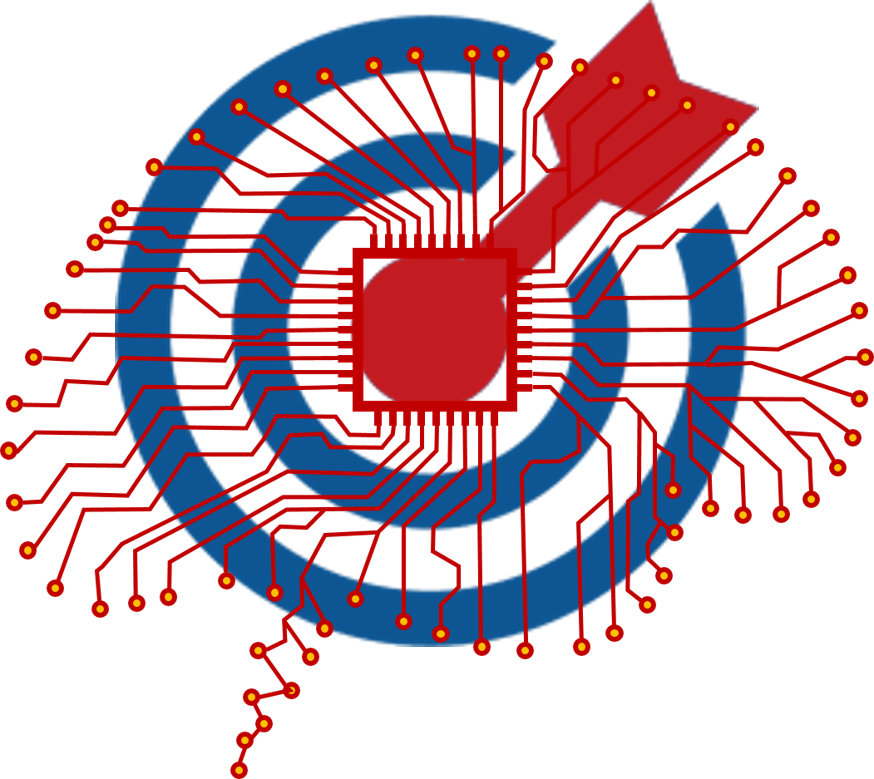In the musical “The King and I,” Anna sings, “Getting to know you. Getting to know all about you. Getting to like you. Getting to hope you like me.” Those lyrics could well be a chorus sung by today’s marketers. Getting to know consumers helps marketers target the right people with the right message for the right products at the right time. Ensuring all these “rights” are aligned is most often accomplished through the use of big data and artificial intelligence (AI). Members of the Forbes Agency Council assert, “Artificial intelligence can bring an efficiency boost to many industries through automated data analysis, fast and efficient processing, and predictive learning systems.”[1] One of those industries is advertising. The Forbes Agency Council notes, AI can be used in “targeted marketing efforts to [provide] better personalization.”
Like many economic sectors, the marketing sector is still learning how best to leverage AI. To date, there have been both successes and stumbles. The only thing we know for certain is that AI in marketing is here to stay. Michelle Tilton, director of marketing for Infutor, writes, “No matter where you turn, artificial intelligence is all the rage. Nearly every industry proclaims success in using the latest technological advancement, and marketing tech is no different.” She stresses, however, companies are still trying to figure out how best to leverage this new technology. “Major corporations with huge multimillion-dollar marketing budgets,” she explains, “are still grappling with the challenges of successfully navigating social, mobile, omnichannel, and the other seemingly limitless number of technologies that promise actionable intelligence to personalize customer interactions. And while it’s important to keep the pulse of the latest trends and investigate the benefits of new technologies such as AI, marketers should take a step back and examine what issues they are trying to solve. In essence, how can this technology enable greater personalization?”
Getting to know you
Every manufacturer, retailer, and marketer desires to know what consumers need and want. Cognitive computing, a form of AI, can help. Publishing executive Denis Wilson (@denis_philly) explains, “Cognitive computing in particular has come of age in the last few years and is increasingly deployed for a number of marketing applications. Cognitive technology — where content is interpreted as if read by a human, taking into consideration context, sentiment and grammatical nuances — can help marketers understand customer interests and behaviors at a very granular level.”[3] As President and CEO of a cognitive computing firm, you won’t be surprised to learn I agree with Wilson. My company’s entry in this field is the Enterra Shopper Marketing and Consumer Insights Intelligence System™, which can leverage all types of consumer data to provide high-dimensional consumer, retailer, and marketing insights. Business consultant Ronald van Loon (@Ronald_vanLoon) insists cognitive technologies can go beyond just providing persona data to providing customers with meaningful personalized experiences. He explains, “Artificial Intelligence is driving our efforts toward delivering a personalized content experience. Experience is the biggest enterprise disruption in 60 years.”[4]
İlker Köksal (@ilkerkoksal), CEO & Co-founder of Botanalytics, agrees with van Loon that AI can provide consumers with personalized experiences. He writes, “[A Company can use] AI and machine learning to offer its customers an experience beyond that of traditional methods.”[5] Whereas van Loon focuses on personalized content Köksal focused on interaction — specifically the use of AI-powered chatbots. He explains, “Chatbots, powered by machine learning, are tackling some of the greatest challenges that users face. In time, these machines will be able to collect and analyze even greater amounts of data and provide even more tailored experiences specific to each user.” In fact, he predicts AI may learn to know you better than you know yourself. Although that sounds creepy — and targeted marketing can cross the line — journalist Michael Baxter (@michaelbaxter_) insists, “AI marketing is needed.”[6] Baxter draws this conclusion from a survey conducted last year in the UK by Emarsys. Baxter reports, “[The] survey reveals that poorly targeted marketing material is causing irreparable, long-term damage to thousands of brand-customer relationships.” On the other hand, “AI marketing can drive customer loyalty to brands.”
The future of AI in marketing
Senthil Nathan R (@raj_senthil82), a data scientist at Marlabs Inc., insists, “Chief Marketing Officers are becoming more convinced of the strategic impact of artificial intelligence on their overall marketing strategy.”[7] He lists several benefits cognitive technologies can offer marketers. They are:
A smarter approach to marketing: “The rise of cognitive technologies, such as Automated Machine Reasoning, Machine Learning, and Natural Language Processing & Generation, could open doors for large amounts of data to be analyzed without any form of manual intervention. Data is collected at a faster rate and is processed into actionable insights just as speedily.”
Improved Efficiency: “Efficiency is a by-product of all cognitive technologies used for automating manual processes. This is in addition to activities that might require higher order cognitive involvement. Some interesting examples to look at are automated report generation, content curation or creation, and sales candidate scoring.”
Predicting the Customer Journey: “This is an important aspect for marketing — to predict and act depending on the various stages of the customer journey. Machine Learning and Deep Learning could help marketers make pointed and accurate decisions based on a customer’s journey, enabling the delivery of all the right offerings at the right intervention points. Data could be gathered from several connected devices such as smart watches, mobiles, and more.”
Speed to Improvisation: “Continuous improvisation is an essential recipe for success. AI and Cognitive Systems thrive on that feature. By self-learning, these systems can adapt to customer sentiment in real-time and reflect those changes in reports for marketers to utilize.”
He concludes, “Marketing is changing at its very foundation, and for the better. It’s become easier, smarter, and a measurable investment.” Analysts from Ubuntu suggest a few more reasons marketers should consider using AI.[8] They include:
Optimizing online searches. “Today, you can search a few or even just one keyword and the search technology will provide the same results you’d get if you were as specific as you could possibly be.”
Targeted advertising. “Also referred to as ‘recommendation engines’, this type of artificial intelligence is another common tool for advertisers.”
Speech recognition (aka speech search). “‘Hey Siri’, ‘Ok Google’, ‘Alexa…’ — these phrases, when written down, might look a little odd to say the least. However, they’re uttered millions of times around the world — at work, at home, on the bus, in the gym — our smartphones and ‘hubs’ can recognize our voices and our words and respond to our commands in the blink of an eye.”
Machine vision (aka visual search). “Theoretically, this means that we’ll be able to take a picture of something we want on our phone — a pair of trainers, a sofa or a table, for example — and our phones and computers will be able to use this image to search for that product or similar items.”
Content generation. “Some pieces are actually written by machines. They are written well enough, albeit with a lot of room for improvement, but for all intents and purposes may as well have been written by a person — but in fact, a computer has done it autonomously.”
Those are just a few of the ways AI is changing the marketing arena. Members of the Forbes Agency Council offer a baker’s dozen of ways AI can be used: Lead-generation; amplified creativity; chatbots, learning optimization, process automation and optimization; data organization; paid advertising optimization; website optimization; sales optimization; enhancing the digital path to purchase; tailoring messages; data entry automation; and enhancing influencer marketing efforts. We’re still learning all the ways AI can be used in marketing; but, the above discussion should convince you AI and marketing have a synergistic relationship in getting to know consumers.
Footnotes
[1] Forbes Agency Council, “13 Ways AI Is Changing The Agency Industry (Or Will Be Soon),” Forbes, 10 April 2019.
[2] Michelle Tilton, “Is Artificial Intelligence Marketing Gold?” Destination CRM, 18 August 2017.
[3] Denis Wilson, “How Cognitive Computing and Analytics Will Transform Marketing,” Target Marketing, 23 October 2017.
[4] Ronald van Loon, “How Artificial Intelligence Delivering a Personalized Content Experience,” Datafloq, 18 January 2018.
[5] İlker Köksal, “Artificial Intelligence May Know You Better Than You Know Yourself,” Forbes, 27 February 2018.
[6] Michael Baxter, “AI marketing can drive customer loyalty to brands, finds survey,” Information Age, 17 October 2018.
[7] Senthil Nathan R, “AI-Driven Transformation & the Impact on Marketing,” Data Science Central, 1 July 2018.
[8] Ubuntu, “How artificial intelligence is changing advertising,” Information Age, 3 May 2018.





